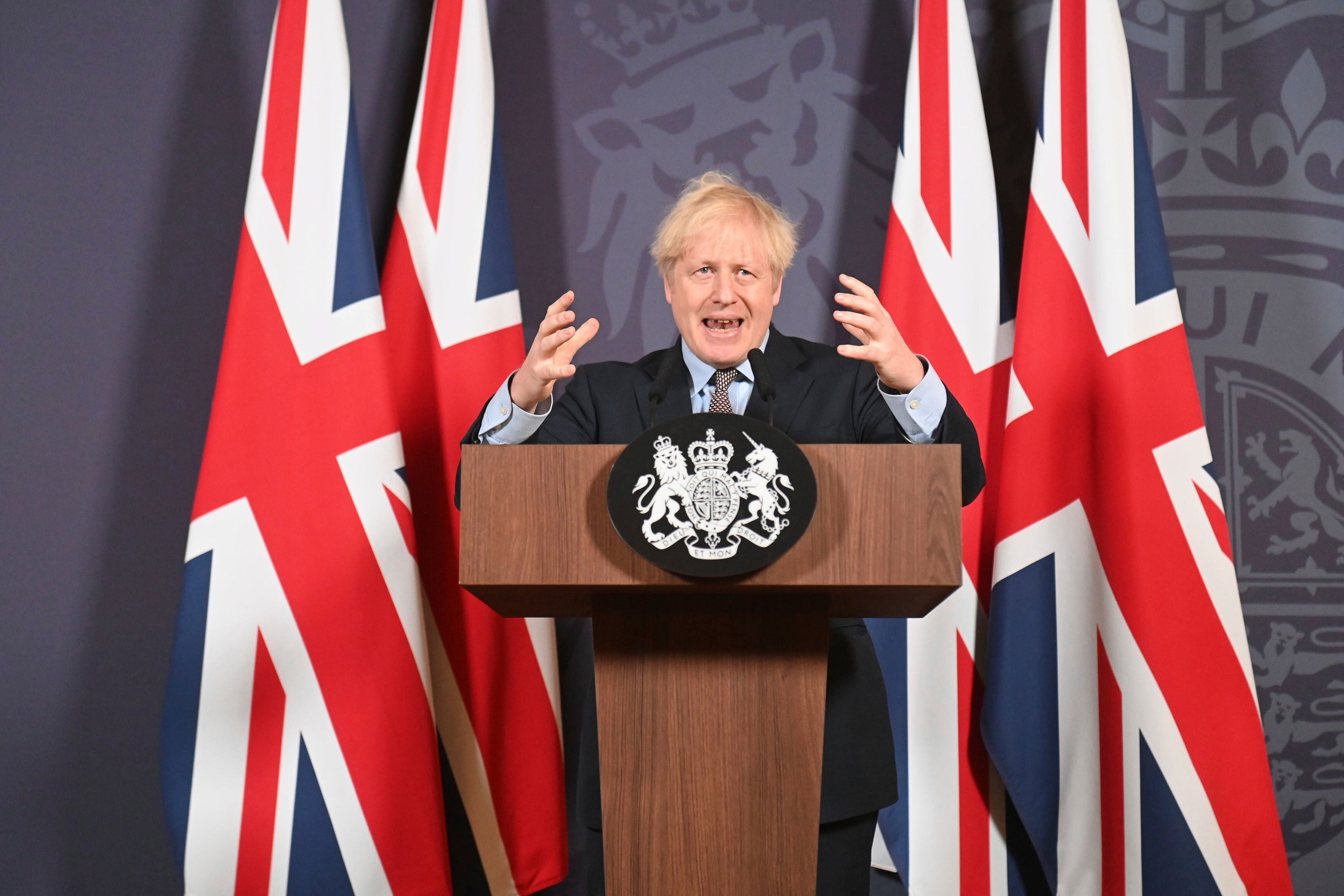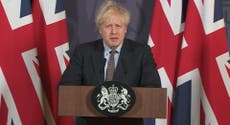Can the UK move on from Brexit? As a European, I find that very hard to believe
Brexit has not been a sort of historical ‘parenthesis’ – businesses will not be back to normal any time soon and hatred and discrimination will not disappear


Your support helps us to tell the story
From reproductive rights to climate change to Big Tech, The Independent is on the ground when the story is developing. Whether it's investigating the financials of Elon Musk's pro-Trump PAC or producing our latest documentary, 'The A Word', which shines a light on the American women fighting for reproductive rights, we know how important it is to parse out the facts from the messaging.
At such a critical moment in US history, we need reporters on the ground. Your donation allows us to keep sending journalists to speak to both sides of the story.
The Independent is trusted by Americans across the entire political spectrum. And unlike many other quality news outlets, we choose not to lock Americans out of our reporting and analysis with paywalls. We believe quality journalism should be available to everyone, paid for by those who can afford it.
Your support makes all the difference.Although some hard Brexiteers will soon start complaining about the content of the Christmas Eve deal, a triumphant Boris Johnson can claim this as his own (personal) victory. It is too early to see the potential disaster to the economy or the diminishing of Britain’s influence on the international stage.
So in the meantime, can we all forget Brexit? As a European citizen, academic, and expert on right-wing nationalism, living and working on this “side” of the Channel, I find that very hard to believe. Brexit has not been a sort of historical “parenthesis”. Businesses will not be back to normal any time soon. Hatred and discrimination will not disappear. The international reputation of the country is mostly broken. Moreover, demagogic politicians will carry on with an anti-European language, exploiting “patriotism”, and blaming immigrants or the “continent” for its own failures.
The story started in June 2016, with the Brexit referendum and the Brexiteers’ propaganda. What surprised many European observers was the British public’s unclear understanding of the workings of the EU, as well as a strange projection of Britain’s international role.
English right-wing nationalism grew in clear opposition to European integration. Unsurprisingly, this ended up in xenophobia towards EU citizens. “We” were stealing “your” jobs. “We” did not belong “here”. “We” should not use our own language in public spaces.
When some of us felt “betrayed” and raised this problem, we often heard it was not about “us”. There was always someone worse to blame – the unskilled immigrant, the benefits seeker, the eastern European citizen, and so on. In sum, having a PhD or being a published author turned me into a more welcome, “Class A” migrant. Should I feel better for this?
This xenophobia clearly goes along with some peculiar readings of the imperial era – when Britain ruled or influenced much of the globe. Such collective memory has had implications on political but also on social practices. It influences a subculture which may generate racism, a sense of superiority, as well as nostalgia for a colonial greatness that can be eventually restored.
“Leaving the EU is not about becoming ‘little Englanders’,” declared a Ukip leaflet. It was “about putting the ‘Great’ back into Great Britain”. These hyper-nationalist arguments came not only from peripheral far-right forces or nostalgic milieus. Roughly six months after the Brexit vote, an allegedly more moderate Conservative prime minister, Theresa May, said: “The British people voted [...] to leave the European Union and embrace the world.” This represented the return of a “truly Global Britain”.
This idea of greatness is based on a belief that the country enjoys some perennial extraordinary international reputation. But the “illusions of British [global] power and prestige” have wider implications.
Another “betrayal” is represented by the ending of the UK’s membership of the Erasmus programme. This will excessively affect the cultural and professional growth of students from less affluent backgrounds. Johnson announced that they are substituting it with a new, global, “Turing” scheme, in which students “have the opportunity ... not just to go to European universities, but to go to the best universities in the world”.
Erasmus’s generous economic support will hardly be replicated by any national programme, and Johnson forgets that British universities already have student exchanges with many fellow institutions across the global. Added to this, campuses across the country will now be more parochial and less attractive. The repercussions of the “hostile environment” are with us. Losing Erasmus and the new immigration system will represent an additional blow for both foreign students and staff.
Britain is not a minor country. It contributed to the foundation of modern democracy. Yet it provides a textbook example of resurgent nationalism – with some political forces exploiting the British past, the populist reaction against globalisation and the popular fears of social changes. In some ways, the motivations behind Brexit cannot even be considered a purely British phenomenon, but Brexiteers and some of the right-wing press offered the “solution” to reverse national decline. This was found in the guise of isolationism, exceptionalism, bizarre perceptions of sovereignty, and suspicious attitudes towards fellow Europeans.
If these form the basis of Britain’s new politics and society, we should be all the more cautious in celebrating this post-EU new era.
Andrea Mammone is a visiting fellow at the Robert Schuman Centre at the European University Institute, and a historian of modern Europe at Royal Holloway, University of London



Join our commenting forum
Join thought-provoking conversations, follow other Independent readers and see their replies
Comments